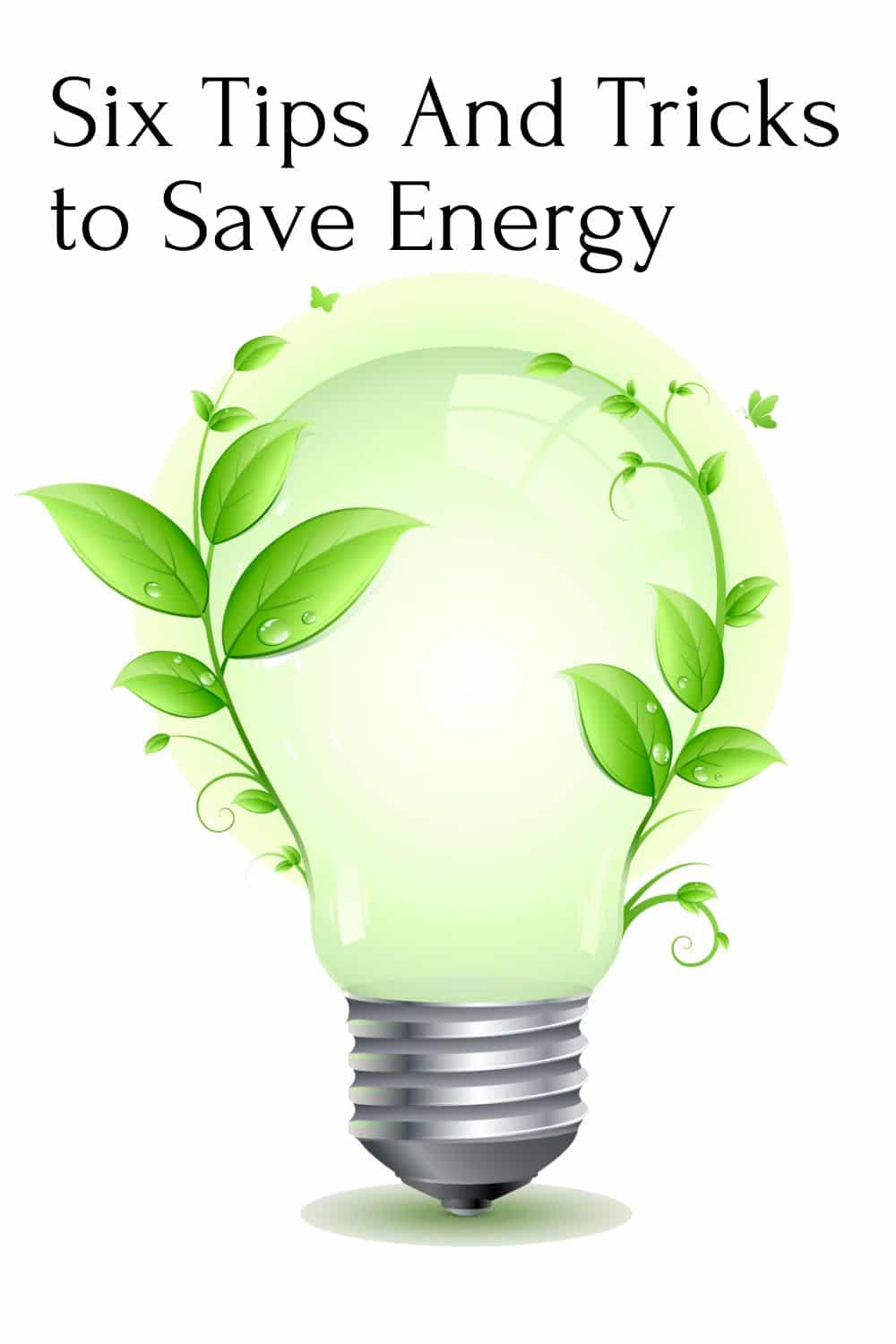Saving energy is something that all individuals can do to play a part in reducing environmental impact. With climate change and global warming constantly on the news, many activists and environmentalists have stepped up to lead the fight against it. From cutting out all usage of animal products to protesting against big companies and governments, saving energy is often advertised as something ordinary people like you and me can do in our daily lives to contribute to this fight. Not sure how and where to start? Read on to learn six tips and tricks to save energy starting today.
What Exactly Is Energy Conservation?
Before jumping right into the tips, let us explain exactly what energy conservation entails. Energy conservation means using minimal energy to save costs and reduce environmental impacts. Forms of energy exist all around you. From the gas stove top in your kitchen to the charging ports you use for your electrical appliances, many man-made things around us all require energy to function.
The more energy something requires, the higher the cost and environmental impact there will be. This is because the main factories that supply the energy to your homes and cities sometimes use raw materials to get the machines going. Hence, if more energy has to be churned out, more material will have to be used, which greatly impacts the environment.
Therefore as individuals, we can implement energy conservation practices in our lives to help save the earth. You can visit this website here if you would like to know more!
Replace Your Light Bulbs
One of the first things you can do almost immediately is change your light bulbs. But, of course, this only applies if you’re currently using incandescent light bulbs. This type of light bulb uses an outrageous amount of electricity every second it is turned on.
With the advancement of technology and innovations, energy-saving light bulbs such as light-emitting diode bulbs (LEDs), fluorescent lights, and halogen bulbs are widely available in the market today. These energy-efficient light bulbs consume less electricity than traditional ones.
Although you’d have to pay more upfront to purchase the energy-saving bulbs, they will reduce your electricity bills in the long term. Oh, and remember that they help conserve energy and reduce environmental impacts!
Opt For Appliances With The Energy-Saving Labels
Depending on where you live, different countries and states have different laws about this. Some places mandate that brands be transparent about their appliance’s level of energy usage. This will come in the form of labels. Some brands use the number of ticks to indicate the energy level each appliance consumes. Typically, the more energy-efficient an appliance is, the more ticks it will have. These are the kind of appliances that you should purchase.
Other indications include the “ENERGY STAR” labeling. It has the same concept as the number of ticks. Regardless, more brands are starting to include these labels as they appeal to the growing population of environmentally-conscious people.
Again, these energy-efficient appliances are typically more expensive but think in terms of the long run. Lower electricity bills and reduction of environmental impacts.
Do Your Laundry In Cold Water
One simple thing you can do is choose the option of cold water instead of warm water on your washing machine. Your laundry will still be washed and cleaned. The only difference is that using warm water costs you more and contributes to harmful environmental impacts.
It was found that reducing the water temperature in the washing machine by 15 degrees will help you save more than $50 a year. A small amount goes a long way. Besides, it’s the attitude of trying to conserve energy that will apply to other areas in your life and thereby multiply the benefits you receive.
Furthermore, cold water is less likely to damage your clothes than warm water’s heat.
Take Advantage Of Natural Light
The best way to conserve energy is not to use them at all. Instead of switching on the lights during the day, wind up your blinds for the sun to shine through. It’s free and takes up no effort at all!
Upgrade Your HVAC System at Home
HVAC stands for heating, ventilation, and air conditioning, respectively. These are the systems that many households use during different seasons of the year.
During the winter, heaters are widely used to artificially raise the house’s temperatures to keep everyone warm, especially in colder regions. However, not using heaters is not an option as the cold can be vicious. Since heating contributes to more than 40% of the electrical bills, upgrading your heating system is the best way to go about this. As mentioned, you should opt for heating systems with energy-efficient labels. Likewise for air conditioning units.
Ventilation units are essential for the air to flow throughout your home. Otherwise, the air will turn stale and musty quickly. To upgrade your ventilation system, purchase good quality ducts that are sturdy and provide good insulation. This will minimize energy waste and save you hundreds of dollars per year. Using lesser energy is also better news for the environment.
For all three systems, ensure to replace the air filters promptly as clean air filters help reduce overall household energy consumption by up to 15%. Having lesser dust on the air filters will also allow the systems to perform optimally with lesser strain. You’ll spend lesser on maintenance and repair as well.
Consciously Change Your Daily Habits
And finally, energy conservation can be achieved with a few minor tweaks in your behavior. Of course, not everyone can afford expensive appliances but changing one’s habits is free and easily attainable.
The usual advice like turning off your lights, fans, and electrical appliances when not in use is cliche, but it works. You could also reduce your usage of energy-intensive appliances by using your manual efforts instead. For example, wash your dishes by hand instead of using the dishwasher or hang your laundry to dry instead of tossing them into the dryer.
Conclusion
Energy conservation doesn’t have to be difficult. As long as you have the mindset of wanting to reduce harmful environmental impacts, you’ll be more willing and motivated to take action. Try out some of these tips yourself and do your part in saving the earth!





Leave a Reply